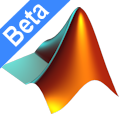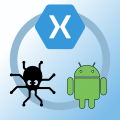A Yoctopuce Toolbox for MATLAB (Beta version)
 Some time ago, we told you that you could use our .NET Proxy library with MATLAB. We decided to dig a little deeper into the subject to see if we could make this MATLAB support official. While doing so, we realized that we could do even better by creating native MATLAB classes. So today, we present you our brand new Yoctopuce Toolbox for MATLAB, in Beta version.
Some time ago, we told you that you could use our .NET Proxy library with MATLAB. We decided to dig a little deeper into the subject to see if we could make this MATLAB support official. While doing so, we realized that we could do even better by creating native MATLAB classes. So today, we present you our brand new Yoctopuce Toolbox for MATLAB, in Beta version.
| No comment yet | Read more... |
Using the Proxy API with WinDEV
![]() Our
Our
| No comment yet | Read more... |
How to use our Android library with Xamarin
 In our previous posts, we always used Android Studio to implement our applications. However, it's not the only available tool. Indeed, some of our customers use Xamarin and C# to implement their mobile applications. This week, we are going to see how to create an Android application using our modules with Xamarin.
In our previous posts, we always used Android Studio to implement our applications. However, it's not the only available tool. Indeed, some of our customers use Xamarin and C# to implement their mobile applications. This week, we are going to see how to create an Android application using our modules with Xamarin.
| No comment yet | Read more... |
LabVIEW library: advanced usage
![]() Almost all the features of the Yoctopuce API are present in the LabVIEW library, this represents more than 2000 possible distinct functions through more than 80 classes. However, there is only one VI per class, so how could we cram an average of 25 calls per VI? This week, we are going to explain to you in more details the concept of proxy objects for the LabVIEW Yoctopuce API.
Almost all the features of the Yoctopuce API are present in the LabVIEW library, this represents more than 2000 possible distinct functions through more than 80 classes. However, there is only one VI per class, so how could we cram an average of 25 calls per VI? This week, we are going to explain to you in more details the concept of proxy objects for the LabVIEW Yoctopuce API.
| No comment yet | Read more... |
High-frequency measures with the Yocto-3D-V2
 We regularly receive questions on how to obtain high frequency measures with the Yocto-3D and the Yocto-3D-V2. We already discussed the principle in a previous post, but to make your life easier, we prepared a concrete example.
We regularly receive questions on how to obtain high frequency measures with the Yocto-3D and the Yocto-3D-V2. We already discussed the principle in a previous post, but to make your life easier, we prepared a concrete example.
| No comment yet | Read more... |


